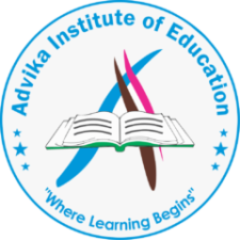The IB Primary Years Programme (PYP) for children aged 3 – 12 nurtures and develops young students as caring, active participants in a lifelong journey of learning.
The PYP offers an inquiry-based, transdisciplinary curriculum framework that builds conceptual understanding. It is a student-centred approach to education for children aged 3-12. It reflects the best of educational research, thought leadership and experience derived from IB World Schools.
The PYP has evolved to become a world leader in future-focused education. The PYP is an example of best educational practice globally, responding to the challenges and opportunities facing young students in our rapidly changing world.
The PYP curriculum framework
The PYP curriculum framework begins with the premise that students are agents of their own learning and partners in the learning process. It prioritizes people and their relationships to build a strong learning community.
PYP students use their initiative to take responsibility and ownership of their learning. By learning through inquiry and reflecting on their own learning, PYP students develop knowledge, conceptual understandings, skills and the attributes of the IB Learner profile to make a difference in their own lives, their communities, and beyond.
The framework emphasizes the central principle of agency, which underpins the three pillars of school life:
the learner
learning and teaching
the learning community.
Embedded in the framework is the recognition of the importance of fostering an individual’s self-efficacy. Students with a strong sense of self-efficacy are active in their own learning and take action in their learning community.
Learn more about the PYP curriculum framework
Why offer the PYP?
The PYP focuses on the development of the whole child as an inquirer, both in school and in the world beyond. The PYP offers a transformative experience for students, teachers and whole school communities and delivers excellent outcomes by providing an education that is engaging, relevant, challenging and significant.
PYP learners know how to take ownership of their learning, collaborating with teachers to deepen understanding and increase their confidence and self-motivation. Through actively engaging in integrated ongoing assessment they become effective, self-regulated learners who can act on constructive feedback.
Guided by six transdisciplinary themes of global significance, students broaden their learning by developing their conceptual understandings, strengthening their knowledge and skills across, between and beyond subject areas.
International Baccalaureate (IB) programmes may be internationally recognised, but they’re also known for being challenging and rigorous.
The programme for elementary school students – the IB Primary Years Programme (PYP) – is for those aged three to 12 and is said to “challenge students to think for themselves and take responsibility for their learning as they explore local and global issues and opportunities in real-life contexts”, notes its website.
The IB Primary Years Programme (PYP) believes that even the youngest minds are capable of the biggest adventures in learning! IB PYP prepares students to become active, caring, lifelong learners who demonstrate respect for themselves and others and have the capacity to participate in the world around them. Through engaging in hands-on, real world experiences that connect all subjects, students are able to understand diverse perspectives of how the world works.
The IB PYP focuses on the development of the whole child through the Learner Profile attributes both within and beyond the classroom. Students enjoy units of study that are fun, connected and challenging, and are exposed to authentic opportunities that allow them to showcase skills and knowledge.
What’s unique about the IB PYP is that it’s transdisciplinary – meaning it focuses on issues that go across subject areas. Some parents may have some trepidation over whether or not to enrol their child in an IB PYP, considering the high cost and whether the qualification is better than that of a state or federal school.
So how do you decide whether the programme is right for your child? Here are some of the potential benefits of an IB PYP to help with your decision:
Globally recognised
IB is internationally renowned and recognised by universities worldwide. IB schools undergo a strict accreditation process so parents can be assured that the quality of education their children are receiving is one that has been thoroughly vetted.
Students who enrol in a regular school curriculum may struggle to adapt to a new country’s curriculum if their families are frequently on the move. An IB PYP can be ideal for such families as the format is the same whether you study in the US or the UK. This means less disruption and a seamless transition for third culture kids.
Better learners
According to studies, students who undergo the IB PYP are better at Math Literacy, Reading, Narrative Writing and Expository Writing in the International Schools’ Assessment (ISA) compared to their non-IB peers across Asia, Oceania, Europe, Americas and Africa.
21st century skills
A lot has been said about preparing students for the future of work, with soft skills playing an increasingly important role. Despite its academic rigour, the IB PYP aims to nurture students to develop skills beyond their academic content. Its website notes that the profile aims to develop learners who are: Inquirers, Knowledgeable, Thinkers, Communicators, Principled, Open-minded, Caring, Risk-takers, Balanced and Reflective, which are among the crucial skills of the 21st century.
Curriculum based on research
The IB curriculum and teaching style is based on research and best teaching practices while teachers undergo ongoing professional development to ensure high standards are maintained.




